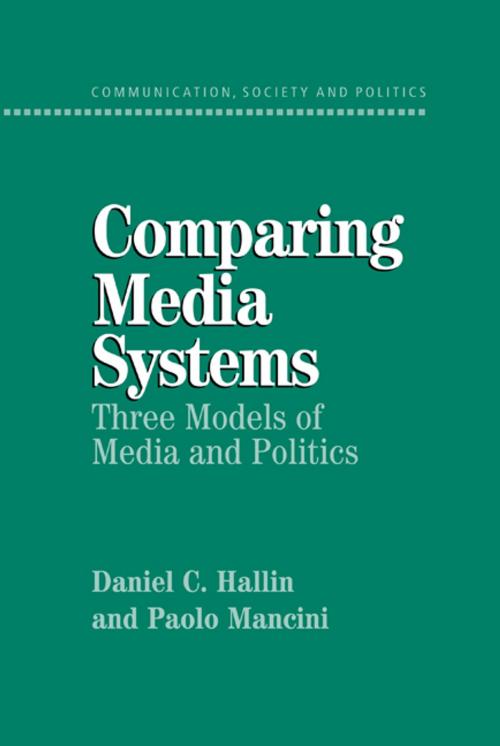Comparing Media Systems
Three Models of Media and Politics
Nonfiction, Social & Cultural Studies, Political Science, Social Science| Author: | Daniel C. Hallin, Paolo Mancini | ISBN: | 9781316099285 |
| Publisher: | Cambridge University Press | Publication: | April 12, 2004 |
| Imprint: | Cambridge University Press | Language: | English |
| Author: | Daniel C. Hallin, Paolo Mancini |
| ISBN: | 9781316099285 |
| Publisher: | Cambridge University Press |
| Publication: | April 12, 2004 |
| Imprint: | Cambridge University Press |
| Language: | English |
Building on a survey of media institutions in eighteen West European and North American democracies, Hallin and Mancini identify the principal dimensions of variation in media systems and the political variables which have shaped their evolution. They go on to identify three major models of media system development (the Polarized Pluralist, Democratic Corporatist and Liberal models) to explain why the media have played a different role in politics in each of these systems, and to explore the forces of change that are currently transforming them. It provides a key theoretical statement about the relation between media and political systems, a key statement about the methodology of comparative analysis in political communication and a clear overview of the variety of media institutions that have developed in the West, understood within their political and historical context.
Building on a survey of media institutions in eighteen West European and North American democracies, Hallin and Mancini identify the principal dimensions of variation in media systems and the political variables which have shaped their evolution. They go on to identify three major models of media system development (the Polarized Pluralist, Democratic Corporatist and Liberal models) to explain why the media have played a different role in politics in each of these systems, and to explore the forces of change that are currently transforming them. It provides a key theoretical statement about the relation between media and political systems, a key statement about the methodology of comparative analysis in political communication and a clear overview of the variety of media institutions that have developed in the West, understood within their political and historical context.















